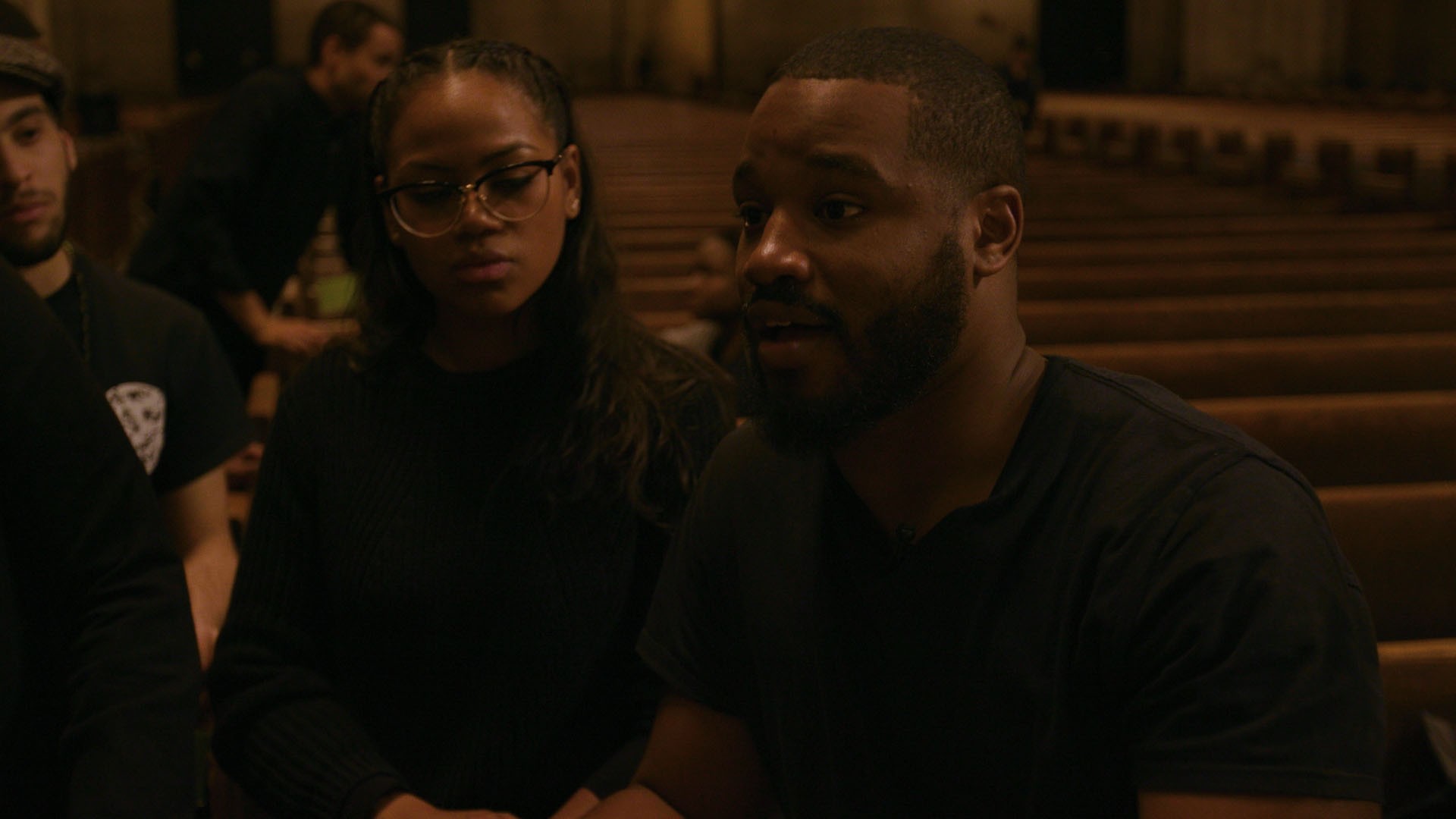Image via NCC Facebook and Wikimedia.
People of several religious groups across the country are honoring the Rev. Dr. Martin Luther King Jr. and his legacy by their commitment to “truth-telling.” It’s a call to urge the faith community to acknowledge and confront racism, and other injustices, and the ways in which people of faith should be held accountable in the fight for justice. On Wednesday, April 4, the 50th anniversary of King’s assassination, the National Council of Churches (NCC) will join thousands of people, its partners, interfaith community and secular organizations for the Act to End Racism Rally on the National Mall in Washington, D.C.The rally is part of a three-day launch event for the NCC’s Truth and Racial Justice Initiative, a multi-year program that aims to continually combat racism across the nation. The launch began with a prayer on April 3, and will conclude with a “national day of advocacy and action,” with workshops and legislative visits on April 5.
Watch some more video from VICE:
And I tell them, “You’re now a part of a lifelong struggle, so learn your history. Understand the system of racism that exists and the power and privilege that you inherit. This is more than just having non-white friends.”As Dr. King has shown us, there’s so much power in organizing. What do you hope the Act to End Racism rally will accomplish?I really hope and pray that one of the things it will illustrate is that there are Christians in this country who don’t want to see the DACA immigrants sent home. Who don’t believe that marching as Nazis in Charlottesville is okay because some of those are “good people.” That there are Christians who don’t believe that taxes shouldn’t be cut so that the rich can have more. But there are Christians who imagine a diverse rainbow of people living in harmony together, and yes that means that we grapple with hard realities and choices and decisions.On the NCC site, there’s mention of “truth-telling,” when it comes to racial injustice. Why is there still a barrier to acknowledging the “truth” for so many people?In a way. truth-telling is extremely powerful for individuals and for groups and for whole societies. If you think about it, with the history of racism and slavery in the United States of America, the fact that we’ve never had a truth and reconciliation process is shocking.
Advertisement
The NCC has partnered with various organizations and groups of other religious faiths to rally at the National Mall and stand united against complicity in both the history and everyday practice of racial injustice. Speakers and performers announced to participate at the rally include, actor Danny Glover, civil rights activist DeRay McKesson, and gospel singer Yolanda Adams, to name a few.
VICE Impact interviewed NCC’s president and general secretary, Jim Winkler, to discuss the Act to End Racism Rally and its mission:VICE IMPACT: What are some ways you believe white people can use their privilege to fight racial injustice?Jim Winkler: One thing that a lot of white people really have to grasp and understand is that they actually do benefit from white privilege. The second thing that happens for a lot of white folks is that immediately they feel guilty, and then they feel paralyzed. [But] you inherit the privileges of a system that has resulted in this kind of inequality and this kind of racism. And you, therefore, have a responsibility to work to change it. It doesn’t work on everybody, but I find especially for young people, what they’ll feel like is, “this is intolerable.”
Advertisement
Watch some more video from VICE:

And I tell them, “You’re now a part of a lifelong struggle, so learn your history. Understand the system of racism that exists and the power and privilege that you inherit. This is more than just having non-white friends.”As Dr. King has shown us, there’s so much power in organizing. What do you hope the Act to End Racism rally will accomplish?I really hope and pray that one of the things it will illustrate is that there are Christians in this country who don’t want to see the DACA immigrants sent home. Who don’t believe that marching as Nazis in Charlottesville is okay because some of those are “good people.” That there are Christians who don’t believe that taxes shouldn’t be cut so that the rich can have more. But there are Christians who imagine a diverse rainbow of people living in harmony together, and yes that means that we grapple with hard realities and choices and decisions.On the NCC site, there’s mention of “truth-telling,” when it comes to racial injustice. Why is there still a barrier to acknowledging the “truth” for so many people?In a way. truth-telling is extremely powerful for individuals and for groups and for whole societies. If you think about it, with the history of racism and slavery in the United States of America, the fact that we’ve never had a truth and reconciliation process is shocking.
We never compensated anybody for having been a slave, much less the inequality that continues to be inflicted to this day on the descendants on those who were wronged through slavery and racism.That kind of reparative and restorative action and justice is not even talked about for the most part in this country because we don’t really want to confront the legacy of slavery and racism. And it’s not going to happen unless people say, alright this is not ancient history. This is part of our legacy and we’ve got to deal with it and address it because it manifests itself in all of our lives, every day in countless ways.This interview has been edited for brevity and clarity
